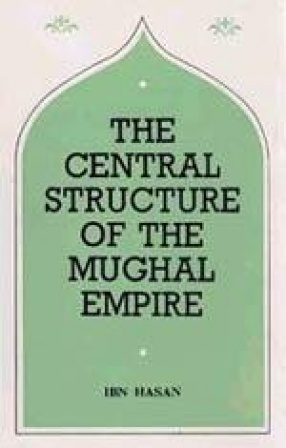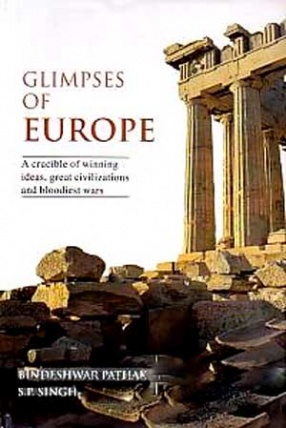The Central Structure of the Mughal Empire is the most complete work describing the organization of the administrative machinery of the central structure of the Mughal government under Akbar and his two immediate successors, Jahangir and Shah Jahan. It covers the period between the year 1560, when Akbar began to rule and the year 1657 when Shah Jahan ceased to rule. As has been rightly pointed out by Sir Dension Ross in his Foreword to the volume, Ibn Hasan’s work ‘must always for a companion volume to the Ain-i-Akbari, and it will be studied by all serious students of Mughal history.’ The assessment of Sir Dension Ross is not an exaggeration since the book covers the whole ground in a manner never before attempted and the author has based the work entirely on original sources both in the MS form or the printed ones. These sources include the chronicles of the period, contemporary Persian works and manuscripts on the various aspects of administration of the Mughal empire, collections of letters and correspondence, biographies and works on political theory by Muslim jurists and other writers besides the European travellers’ records and modern works. Some of the original sources have been utilized for the first time in the present work; for instance Chahar Chaman by Chandra Bhan Brahman, a contemporary writer during Shah Jahan’s reign, which ranks second only to Akbar Nama from the point of view of its utility for the practical knowledge of the administration of Shah Jahan’s reign, has been taken into account for the first time in the present book. The book is divided into three parts; the first dealing with the king and his position in the state and the transaction of the state business by him. The second part deals with the reorganization of the vizarat under Akbar and besides describing the powers and functions of the ministers as heads of departments also includes the description and analysis of the internal working of each department substantiating the analysis by the historical facts of the period. The third part deals with the judicial system of the empire while the fourth and the last chapter summarizes the conclusions. Underlying Ibn Hasan’s analysis is the thesis that Akbar’s policy was derived from the experience of the past and he not only devised a system which contributed to the prosperity of his subjects-both the Hindus and the Muslims alike-but also solved the problem of the vizarat and the nobility thereby resulting in the continuation of the policy under his successors Jahangir and Shah Jahan.
The Central Structure of the Moghul Empire
In stock
Free & Quick Delivery Worldwide
reviews
Bibliographic information
Title
The Central Structure of the Moghul Empire
Author
Edition
1st ed.
Publisher
ISBN
8121502292
Length
x+398p., Illustrations.
Subjects





There are no reviews yet.